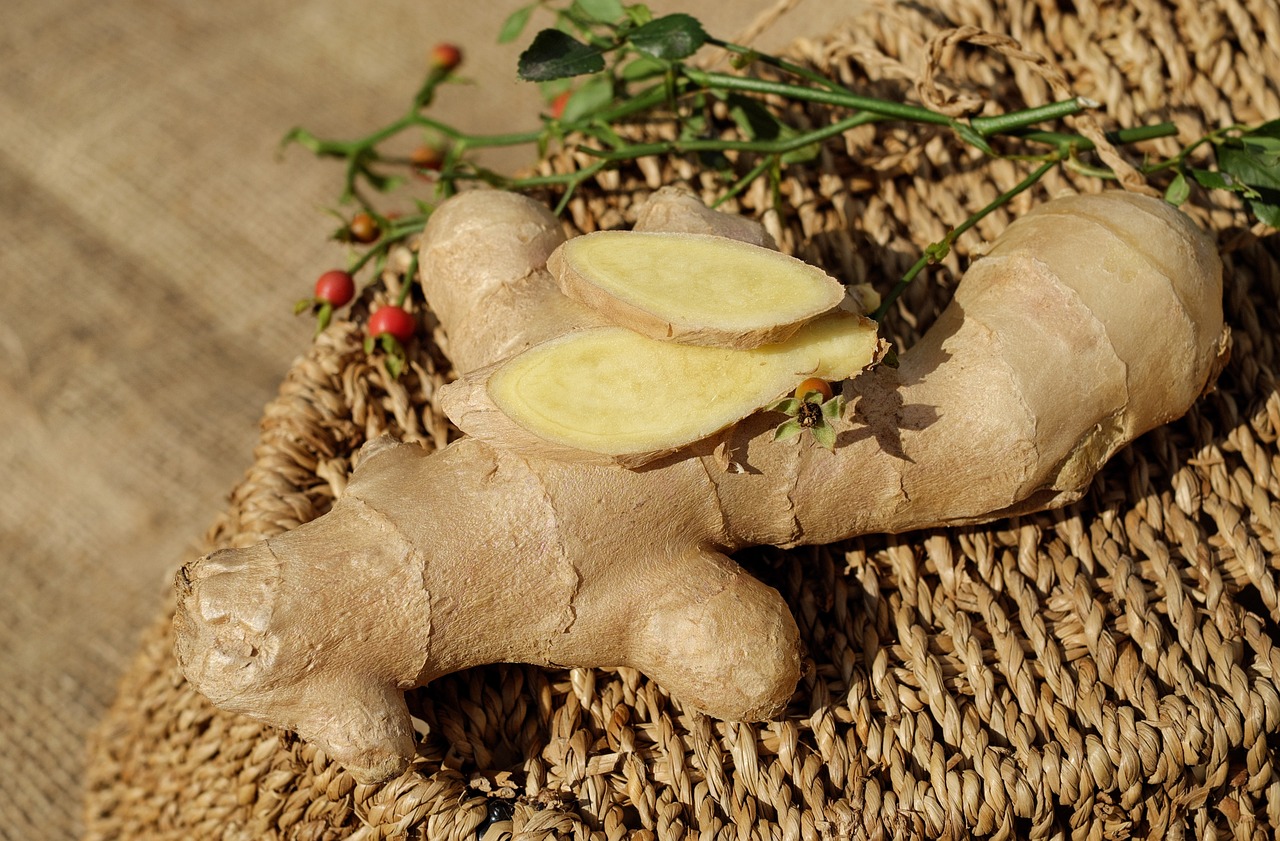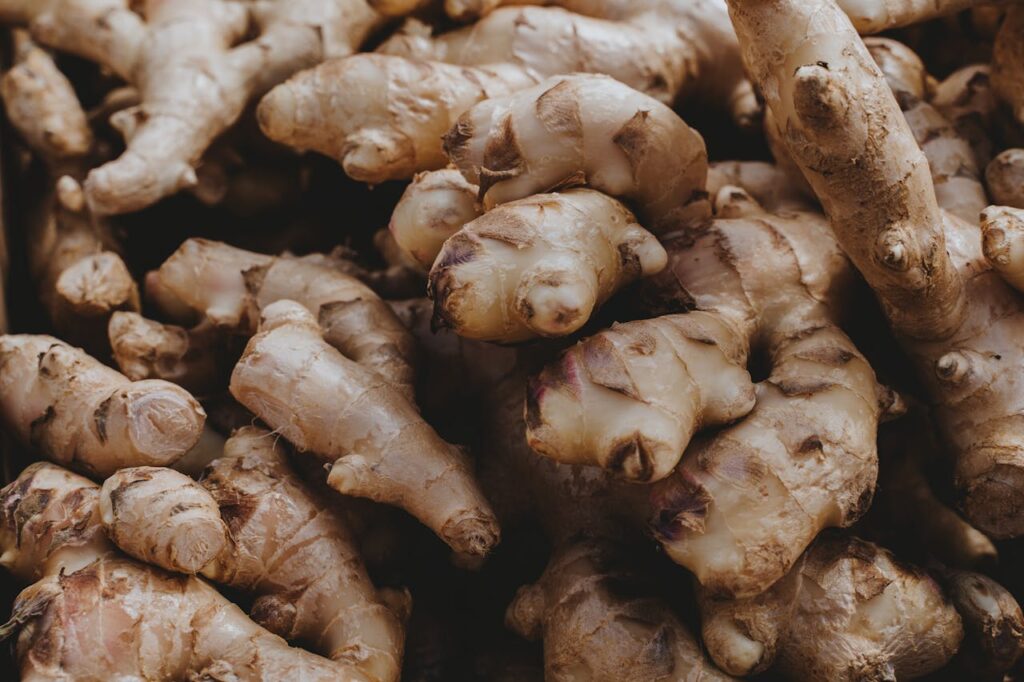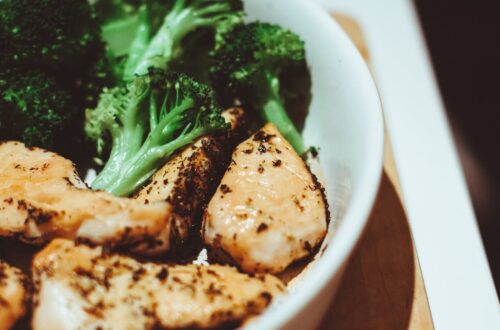
Ginger: Natural Ally Against High Blood Pressure
In the quest for natural remedies to manage high blood pressure, ginger emerges as a promising contender. Renowned for its culinary and medicinal uses, ginger has been treasured for centuries across various cultures. But what exactly is ginger, and how does it impact blood pressure? In this comprehensive guide, we’ll delve into the science behind ginger’s potential as a natural blood pressure remedy, exploring its benefits, mechanisms of action, and practical ways to incorporate it into your daily routine.
Understanding Ginger: Ginger, scientifically known as Zingiber officinale, is a flowering plant native to Southeast Asia. It belongs to the Zingiberaceae family, which also includes turmeric and cardamom. Revered for its distinct flavor and aroma, ginger has been a staple ingredient in cuisines worldwide. Beyond its culinary appeal, ginger boasts a rich history of medicinal use, particularly in traditional Ayurvedic and Chinese medicine.
The Potential Link Between Ginger and Blood Pressure: Recent research has sparked interest in ginger’s potential to modulate blood pressure levels. High blood pressure, or hypertension, is a significant risk factor for cardiovascular diseases, including heart attack and stroke. While lifestyle modifications and medications are commonly prescribed to manage hypertension, complementary therapies like ginger may offer additional benefits.
Several studies have explored the effects of ginger on blood pressure regulation, yielding promising results. A meta-analysis published in the Journal of Hypertension Research concluded that ginger supplementation significantly lowered both systolic and diastolic blood pressure in hypertensive individuals. The bioactive compounds in ginger, such as gingerol and shogaol, are believed to exert vasodilatory effects, promoting relaxation of blood vessels and improving blood flow.
Moreover, ginger exhibits antioxidant and anti-inflammatory properties, which play a crucial role in cardiovascular health. By scavenging free radicals and reducing inflammation, ginger may help mitigate oxidative stress and endothelial dysfunction, contributing to overall blood pressure control.
Practical Ways to Incorporate Ginger Into Your Routine: Harnessing the potential benefits of ginger for blood pressure management doesn’t have to be complicated. Here are some simple yet effective ways to incorporate ginger into your daily routine:
- Fresh Ginger Tea: Start your day with a warming cup of fresh ginger tea. Simply grate or thinly slice fresh ginger root, steep it in hot water for 5-10 minutes, and enjoy with a touch of honey or lemon for added flavor.
- Culinary Delights: Experiment with incorporating fresh or dried ginger into your culinary creations. Add grated ginger to stir-fries, soups, curries, or salad dressings for a burst of flavor and potential health benefits.
- Ginger Supplements: If fresh ginger isn’t readily available, consider supplementing with ginger capsules or extracts. Opt for high-quality supplements from reputable brands to ensure potency and purity.
- Ginger Shots: Kickstart your morning with a ginger shot for a potent dose of antioxidants and anti-inflammatory compounds. Blend fresh ginger with citrus fruits like lemon or orange for a zesty and invigorating concoction.
- Ginger Infused Water: Infuse water with ginger slices and other complementary ingredients like cucumber, mint, or berries for a refreshing and hydrating beverage.
Top 5 Benefits of Ginger:
- Regulation of Blood Pressure: Ginger, with its rich array of bioactive compounds, exerts notable effects on cardiovascular health, including blood pressure regulation. Studies have demonstrated that gingerols, the primary active components in ginger, possess vasodilatory properties, which help relax blood vessels, thereby lowering blood pressure levels. Furthermore, ginger inhibits angiotensin-converting enzyme (ACE), a key player in the renin-angiotensin system that regulates blood pressure. By modulating these pathways, ginger offers a natural approach to managing hypertension without the side effects associated with conventional medications.
- Anti-Inflammatory Effects: Chronic inflammation is intricately linked to hypertension, as it contributes to endothelial dysfunction and arterial stiffness. Ginger, endowed with potent anti-inflammatory properties, emerges as a promising ally in combating hypertension. Its active constituents, particularly gingerol and shogaol, inhibit pro-inflammatory cytokines and enzymes, thus attenuating the inflammatory cascade. By mitigating inflammation, ginger not only addresses the underlying mechanisms of hypertension but also reduces the risk of associated complications such as atherosclerosis and heart disease.
- Antioxidant Activity: Oxidative stress, characterized by an imbalance between free radicals and antioxidants, plays a pivotal role in the pathogenesis of hypertension. Ginger boasts impressive antioxidant prowess, scavenging free radicals and bolstering the body’s defense mechanisms against oxidative damage. Studies have revealed that ginger enhances the activity of endogenous antioxidants like superoxide dismutase (SOD) and catalase, while also inhibiting lipid peroxidation. By neutralizing oxidative stress, ginger fosters vascular health and helps maintain optimal blood pressure levels.
- Improved Blood Circulation: Adequate blood circulation is paramount for optimal cardiovascular function and blood pressure regulation. Ginger facilitates blood flow by promoting vasodilation and inhibiting platelet aggregation, thereby reducing the risk of clot formation and enhancing peripheral circulation. Moreover, ginger stimulates the production of nitric oxide (NO), a vasodilator molecule that relaxes blood vessels and improves endothelial function. By enhancing blood circulation, ginger ensures efficient nutrient delivery and waste removal, thereby supporting overall cardiovascular health.
- Stress Reduction and Relaxation: Chronic stress and anxiety contribute significantly to hypertension by eliciting sympathetic nervous system activation and increasing cortisol levels. Ginger possesses adaptogenic properties, meaning it helps the body adapt to stressors and maintain homeostasis. By modulating neurotransmitter levels and attenuating stress responses, ginger induces a sense of calmness and relaxation, which in turn, alleviates hypertension. Additionally, ginger’s aroma and flavor stimulate the senses, promoting psychological well-being and stress relief.

Conclusion: Ginger emerges as a multifaceted natural remedy for hypertension, offering a holistic approach to blood pressure management. Its diverse array of bioactive compounds exerts beneficial effects on cardiovascular health, including blood pressure regulation, inflammation reduction, antioxidant protection, improved circulation, and stress alleviation. By integrating ginger into a balanced lifestyle encompassing nutritious diet, regular exercise, and stress management techniques, individuals can harness its full potential in safeguarding cardiovascular well-being. Embracing ginger as a natural ally in the fight against hypertension heralds a paradigm shift towards sustainable health practices rooted in ancient wisdom.
Sources:
- Yiming Li et al. “The antihypertensive effect of ethyl acetate extract from ginger via regulating angiotensin-converting enzyme.” Evidence-Based Complementary and Alternative Medicine, vol. 2019, 2019.
- Rahmani et al. “Role of oxidative stress in pathogenesis of metabolic syndrome.” Reviews in Endocrine and Metabolic Disorders, vol. 21, no. 1, 2020, pp. 65-73.
- Rahman et al. “Anti-inflammatory and anti-oxidant effects of ginger in health and physical activity: review of current evidence.” International Journal of Preventive Medicine, vol. 5, no. 1, 2014, pp. 36-42.
- Khandouzi et al. “The Effects of Ginger on Fasting Blood Sugar, Hemoglobin A1c, Apolipoprotein B, Apolipoprotein A-I and Malondialdehyde in Type 2 Diabetic Patients.” Iranian Journal of Pharmaceutical Research, vol. 14, no. 1, 2015, pp. 131-140.
- Marx et al. “Platelet anti-aggregatory effect of gingerol and its role in thromboxane production.” Prostaglandins, Leukotrienes and Medicine, vol. 20, no. 3, 1985, pp. 333-342.




